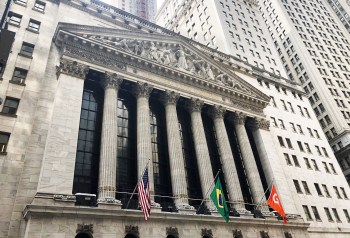The stock market is taking another nosedive. Economists are cutting their global growth estimates. Investors worry that European banks aren’t strong enough to withstand the Mediterranean sovereign debt crisis. Political gridlock is paralyzing fiscal policy in Washington.
The gloom about the economy’s prospects is feeding off the declining stock market. We’ve been trained to look at the trend in stock prices as a reasonably accurate gauge. Policymakers, corporate executives, and ordinary workers need to pay attention to the market’s collective judgment. Right?
Well, maybe not. There’s no real doubt that the economic fundamentals have taken a turn for the worse. Question is, by how much? A little? A lot? Yes, the stock market seems to be signaling that the odds of another recession are high. But what if the downbeat message in the market is distorted and amplified by meaningless stock trading activity that simply feeds off volatility.In other words, the market is telling us less about the economy and more about high frequency traders.
High-frequency traders use extremely powerful computers and sophisticated algorithms to exploit exceedingly small price movements, buying and selling in fractions of a second. The Wall Street Journal on Aug. 16th noted how high frequency traders are scoring big off market volatility:
High-frequency traders have roughly tripled their stock trades this month, estimates Tabb Group, a markets-research firm in New York. That has boosted their share of overall U.S. stock trading volume to about 65%, up from about 53% during the months before the August turmoil, according to the research firm.>
That’s a big share of market trading. Economist Ed Yardeni is convinced that high frequency trading “contributed significantly to the insane volatility of the market over the past two weeks.” He quotes from a report by the Brattle Group, an economic and financial consulting firm:
In most HFT strategies, quotes only last for a few micro- or milliseconds at a maximum, and therefore are not actionable by the majority of market participants. There is also evidence that some HFT systems deliberately cancel many of their orders almost immediately after placing them, as they do not intend for the trades to carry through. The false orders are used instead as part of a ‘pinging’ tactic to discover the price other traders are willing to pay. These practices, known as ‘flickering quotes’ or ‘quote stuffing,’ have been claimed to generate an overload of data to market centers, potentially increasing systemic risk.>
Human judgment, however flawed, seems less and less a factor in the stock market. A fascinating paper by Paul David, economic historian at Stanford and Oxford, delves into the risks of computer trading outrunning human judgment and regulatory oversight. It’s suggestive–and chilling.
Perhaps we should call it the Skynet Market.
In the Terminator movie series, the military judged humans as too slow and inefficient so the Skynet digital defense system was created. Problem is, the machines took over. I know the news in the market isn’t good. I just don’t know how much the stock market gyrations reflect a computer-generated mirage and how much the best guesstimate of human judgment trying to pierce the fog of the future. Either way, it isn’t a comforting thought.
There’s a lot happening in the world. Through it all, Marketplace is here for you.
You rely on Marketplace to break down the world’s events and tell you how it affects you in a fact-based, approachable way. We rely on your financial support to keep making that possible.
Your donation today powers the independent journalism that you rely on. For just $5/month, you can help sustain Marketplace so we can keep reporting on the things that matter to you.


















